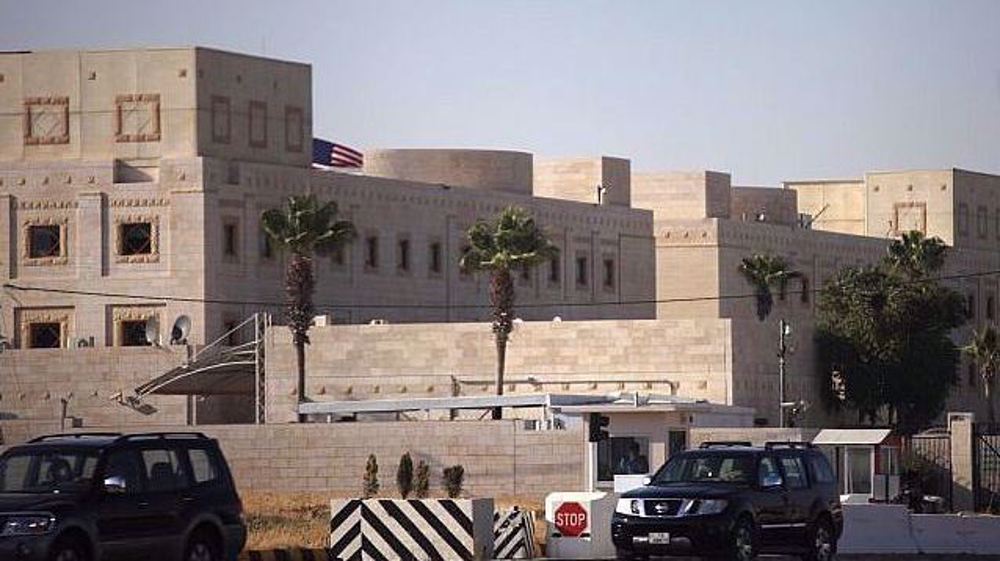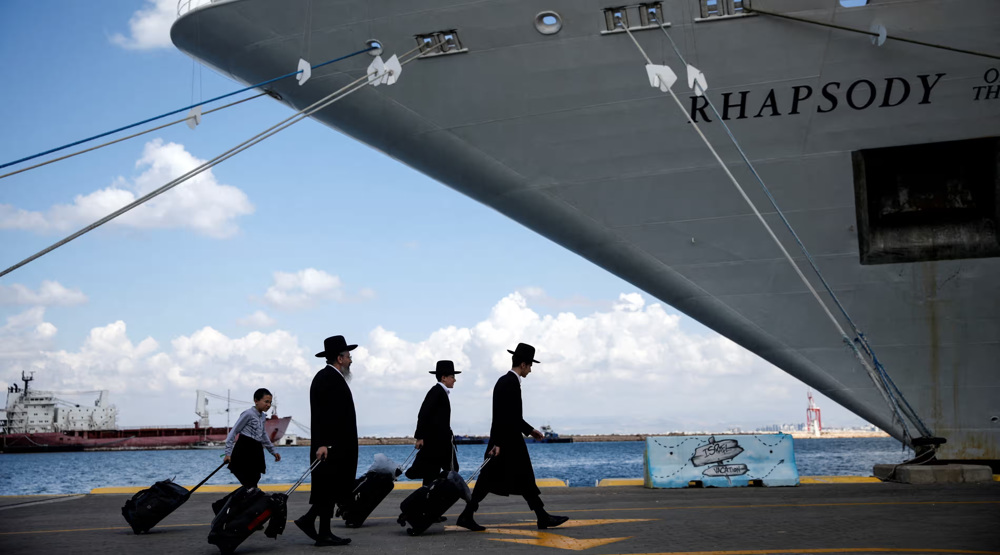Triple bombings claim 142 lives at mosques in Yemen’s capital
At least 142 people have been killed and nearly 351 wounded after three bomb attacks hit mosques crowded with worshippers in the Yemeni capital, Sana’a, in quick succession.
Witnesses said two bombers carried out an attack inside the Badr mosque in southern Sana’a during midday prayers on Friday.
One walked inside the mosque and detonated his explosive device, causing panic and making dozens of worshippers rush toward the outside gates. A second bomber then attacked at the gate as panicked worshippers tried to flee.

Yemeni emergency personnel and Houthi fighters carry a body on a stretcher following a bomb explosion at the Badr mosque in southern Sana’a, March 20, 2015. © AFP
A third bomber targeted al-Hashoosh mosque in northern Sana’a. One witness at the mosque said the force of the explosion threw him a couple of meters away.
“The heads, legs and arms of the dead people were scattered on the floor of the mosque,” Mohammed al-Ansi said, adding, “Blood is running like a river.”
Ansi noted that many of those who did not die in the blast were critically wounded by shattered glass falling from the windows.
There has been no immediate claim of responsibility for the bombings, but the acts of terror bear the hallmarks of those carried out by the al-Qaeda in the Arabian Peninsula (AQAP), which is based in Yemen.
The attacks come a day after intense gun battles between supporters and opponents of fugitive President Abd Rabbuh Mansour Hadi in the southern port city of Aden left more than a dozen people dead and forced closure of the city’s international airport.

A man stranded at the Aden International Airport waits as heavy gun battles between supporters and opponents of Yemen’s fugitive President Abd Rabbuh Mansour Hadi erupted in Aden, March 19, 2015. © AP
Hadi, along with members of Prime Minister Khaled Bahah’s cabinet, stepped down in late January, but the parliament did not approve the president's resignation. The president fled his home in Sana’a on February 21, after weeks under effective house arrest and went to Aden, Yemen’s second largest city, where he officially withdrew his resignation and highlighted his intention to resume duties. This came after the Houthi fighters took control of Sana’a in September 2014.
Some Persian Gulf Arab states, including Saudi Arabia, have already relocated their embassies from Sana’a to Aden.

Yemen’s fugitive President Abd Rabbuh Mansour Hadi
Hadi also called on the Ansarullah revolutionaries to relinquish power and leave Sana’a. The Houthis, however, said Hadi had lost his legitimacy as head of state and was being sought as a fugitive from justice.
The Houthi movement played a key role in the 2011 popular uprising that forced former dictator, Ali Abdullah Saleh, to quit after 33 years in power. The revolutionaries say the government has been incapable of properly running the affairs of the country and providing security.
MP/HSN/SS
Panama rejects talks with US over canal control
HTS rulers name al-Qaeda operative as Syria's new spy chief
Iran voices concern about rising insecurity, violence in Syria
VIDEO | Karachi sit-in amplifies nationwide call for justice for Parachinar victims
Iran strongly condemns Israeli bombing of Yemen's civilian infrastructure
VIDEO | Press TV's news headlines
VIDEO | Israel and Iran’s Nuclear Facilities?
At least three killed as Israel bombs Sana'a airport, power plant










 This makes it easy to access the Press TV website
This makes it easy to access the Press TV website